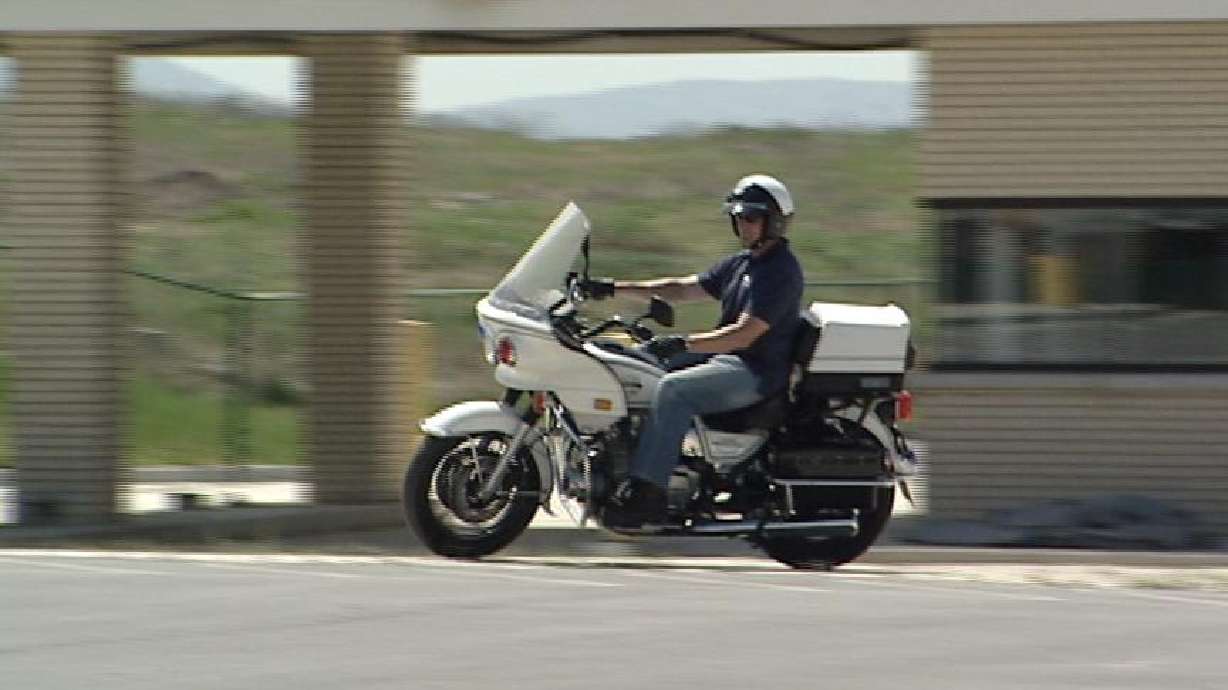Estimated read time: 1-2 minutes
This archived news story is available only for your personal, non-commercial use. Information in the story may be outdated or superseded by additional information. Reading or replaying the story in its archived form does not constitute a republication of the story.
Samantha Hayes ReportingThe TV shows made it look glamorous, officers on motorcycles riding to the rescue. But in reality, it's a lot more work and the motorcycle squad training sends many police officers packing before it's over.
By the time you see them, they have it down, but first there is a lot of starting and mostly stopping.
Robert Hawke, Instructor: "Most of them have never been on a motorcycle."

Michael Lowgher, Salt Lake City Police Officer: "Just exciting to be out here, little scary."
Michael Lowgher has been on the force with Salt Lake City more than two years.
Michael Lowgher: "Always wanted to ride a motorcycle. Thought this would be a good way to get extra training."
But he knows what he's in for.
Michael Lowgher: "Two week class, full 13 days from 7:00 in the morning, not sure when it ends."
The 13-day training is rigorous and intense. Fewer than half of the officers complete it.
Robert Hawke: "When you see one of these guys go down at 40 miles an hour, it will scar you. And a lot of them will pack it up and leave after they see that."
It's even more difficult to see when it happens on the job. In February, a Salt Lake City Motorcycle officer was injured in a crash on Bangerter Highway. He slid 200 feet before hitting a barrier. Injuries happen in training, too.
Robert Hawke: "It happens. It's the nature of the beast."
The Instructor says teaching the officers how to use the front wheel brake is the most dangerous part. They'll start on that Wednesday.








